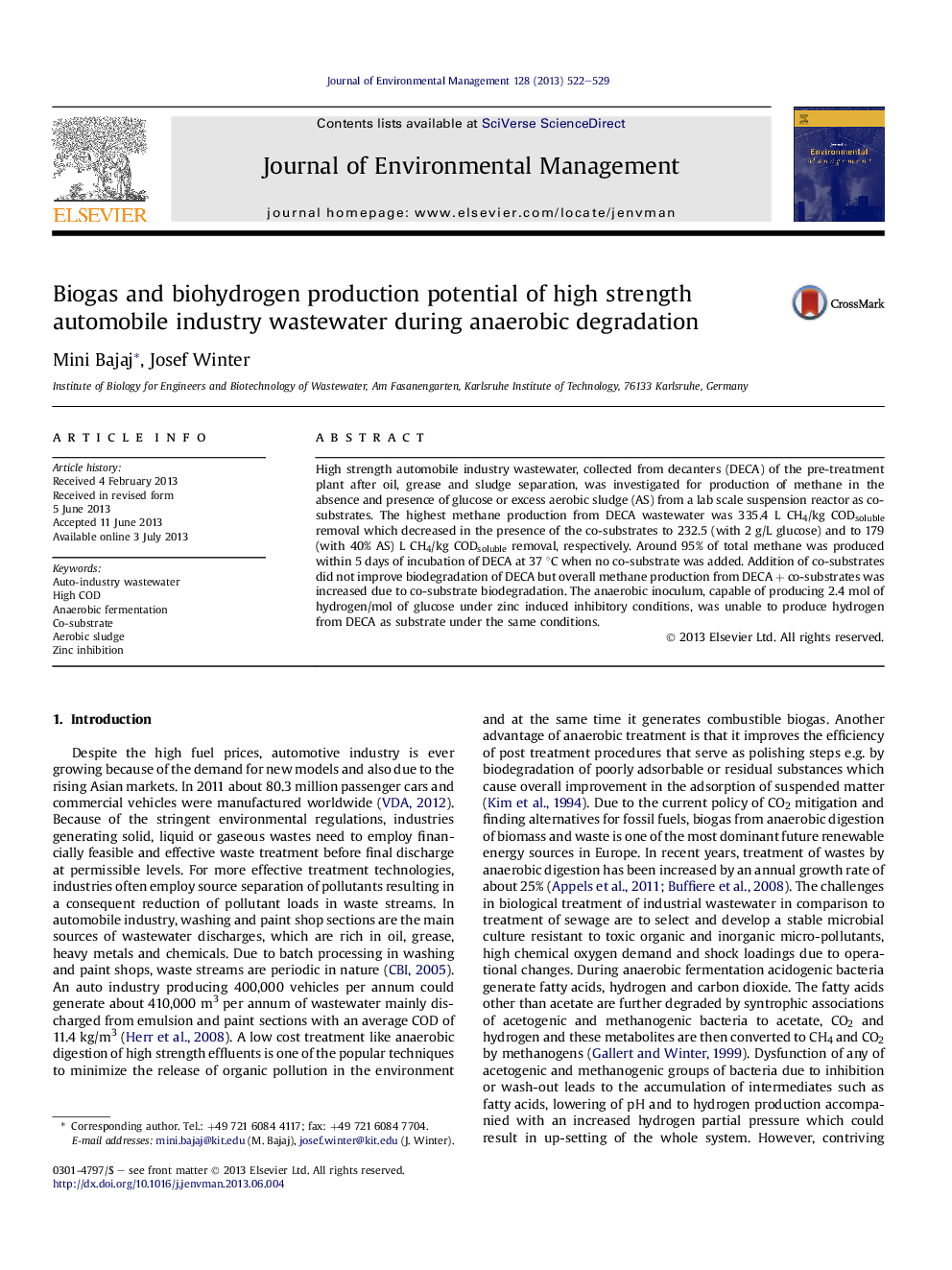| Article ID | Journal | Published Year | Pages | File Type |
|---|---|---|---|---|
| 7484392 | Journal of Environmental Management | 2013 | 8 Pages |
Abstract
High strength automobile industry wastewater, collected from decanters (DECA) of the pre-treatment plant after oil, grease and sludge separation, was investigated for production of methane in the absence and presence of glucose or excess aerobic sludge (AS) from a lab scale suspension reactor as co-substrates. The highest methane production from DECA wastewater was 335.4 L CH4/kg CODsoluble removal which decreased in the presence of the co-substrates to 232.5 (with 2 g/L glucose) and to 179 (with 40% AS) L CH4/kg CODsoluble removal, respectively. Around 95% of total methane was produced within 5 days of incubation of DECA at 37 °C when no co-substrate was added. Addition of co-substrates did not improve biodegradation of DECA but overall methane production from DECA + co-substrates was increased due to co-substrate biodegradation. The anaerobic inoculum, capable of producing 2.4 mol of hydrogen/mol of glucose under zinc induced inhibitory conditions, was unable to produce hydrogen from DECA as substrate under the same conditions.
Related Topics
Physical Sciences and Engineering
Energy
Renewable Energy, Sustainability and the Environment
Authors
Mini Bajaj, Josef Winter,
